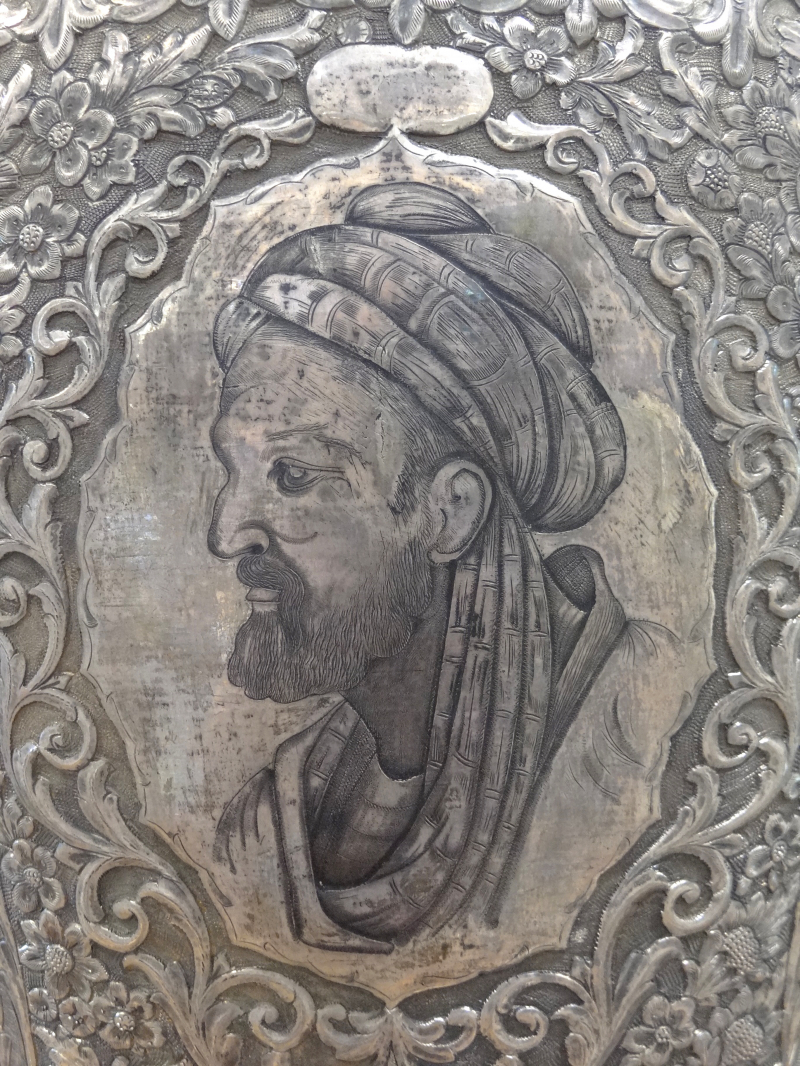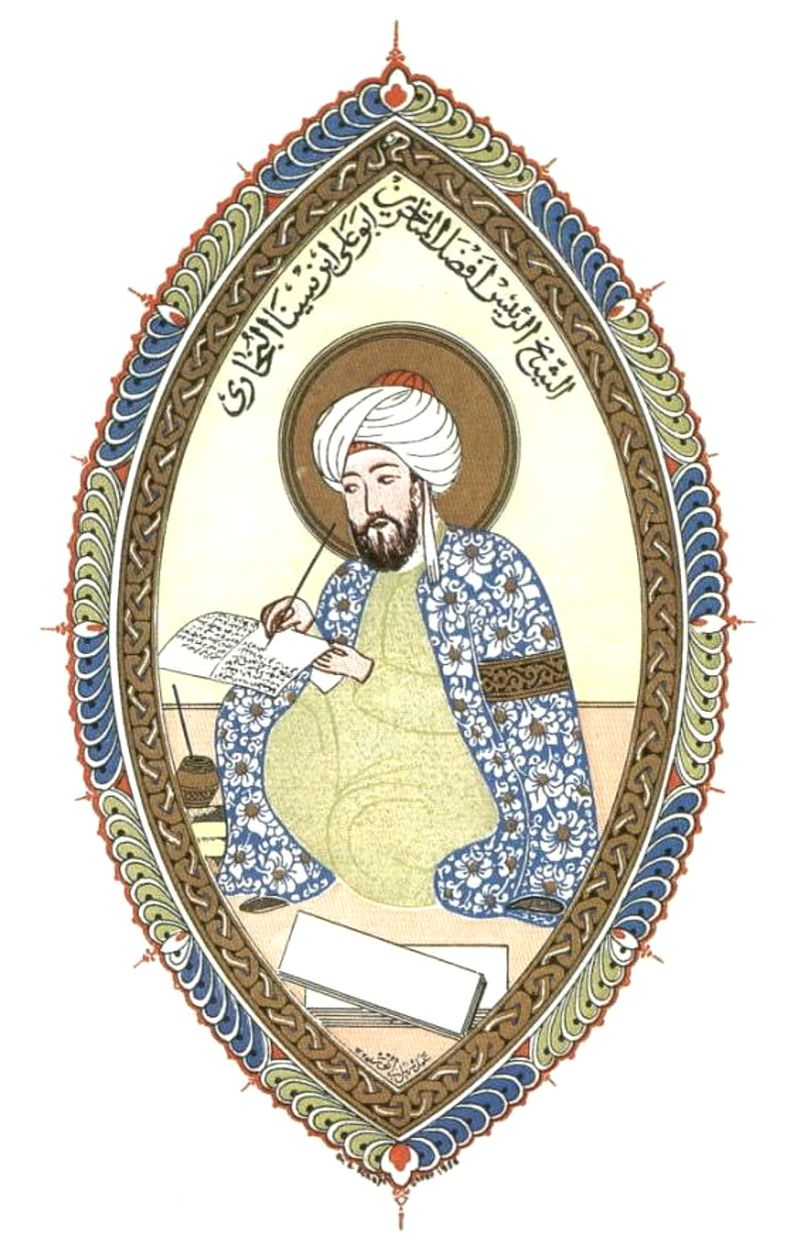Avicenna
Ibn Sina (980 - June 1037 CE), known in the West as Avicenna, was a Persian polymath who is regarded as one of the most significant physicians, astronomers, philosophers, and writers of the Islamic Golden Age, and the father of early modern medicine. Around 240 of the 450 works he is thought to have written have survived, including 150 on philosophy and 40 on medicine. He is regarded as one of the most important historical figures in Uzbekistan.
His most famous works are The Book of Healing, a philosophical and scientific encyclopedia, and The Canon of Medicine, a medical encyclopedia that became a standard medical text at many medieval universities and was still in use as late as 1650.
In modern-day Iran, Afghanistan, and Tajikistan, he is revered as a national hero and is widely regarded as one of the greatest Persians. Outside the Bukhara Museum, a monument was erected. The Avicenna Mausoleum and Museum in Hamadan was built in 1952. Bu-Ali Sina University in Hamadan (Iran), the biotechnology Avicenna Research Institute in Tehran (Iran), the ibn Sn Tajik State Medical University in Dushanbe, the Ibn Sina Academy of Medieval Medicine and Sciences at Aligarh, India, the Avicenna School in Karachi and the Avicenna Medical College in Lahore, Pakistan, the Ibn Sina Balkh Medical School in his native are all named in his honour. His portrait hangs in the Avicenna Faculty of Medicine Hall at the University of Paris. Avicenna is both a crater on the Moon and a genus of mangroves.
The Avicenna Prize, established in 2003, is awarded every two years by UNESCO and recognizes individuals and groups for their achievements in the field of science ethics. The award's goal is to promote ethical reflection on issues raised by advances in science and technology, as well as to raise global awareness of the importance of science ethics







